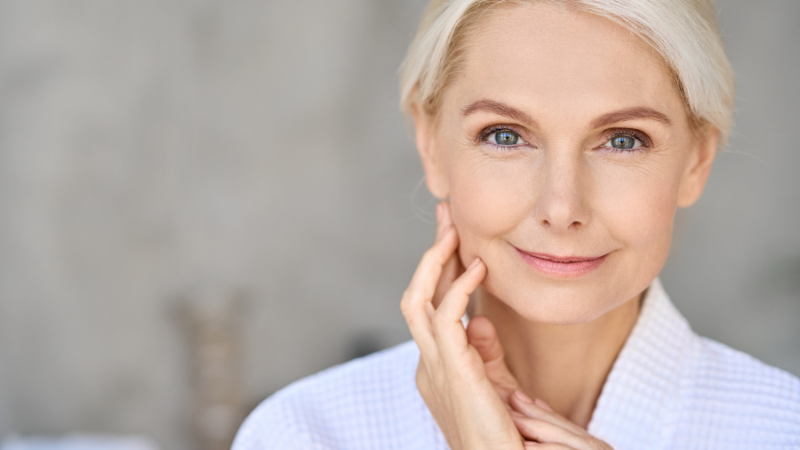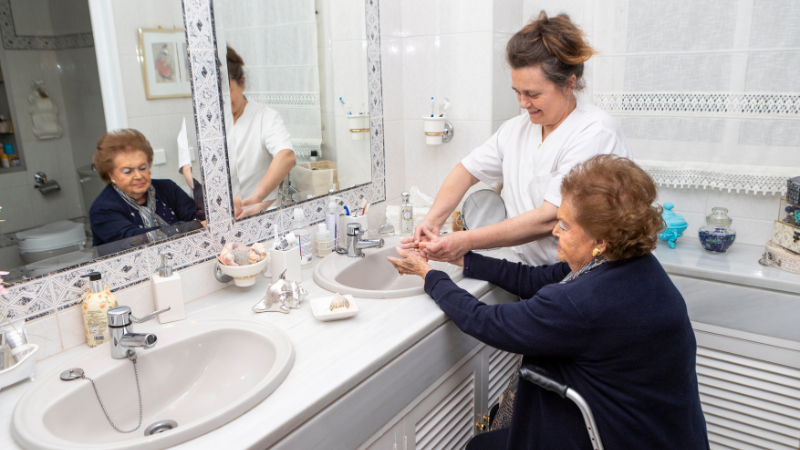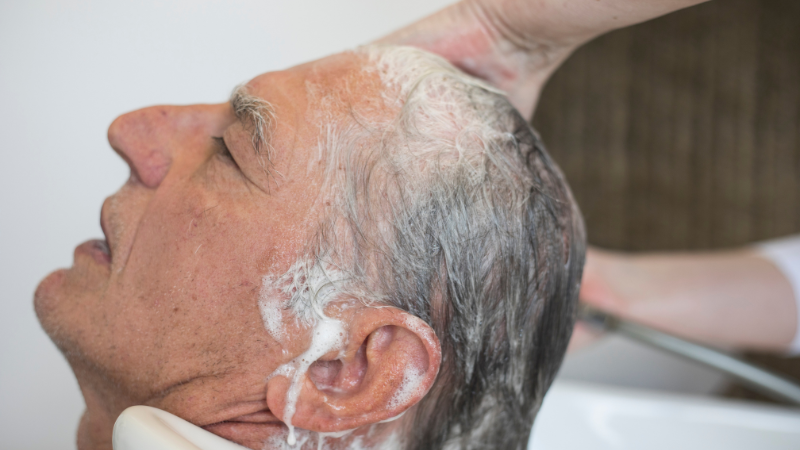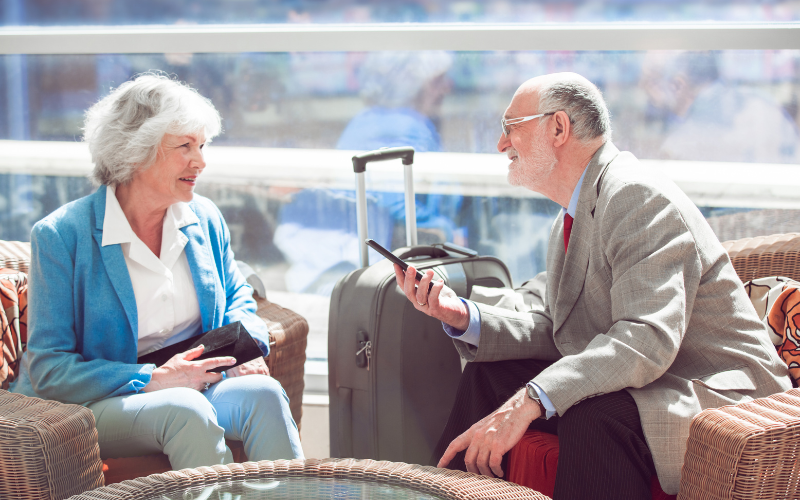Completing the activities of daily living becomes more difficult as people age. Physical immobility or cognitive decline are often responsible for a neglect in self-care tasks, including showering and washing hair. Despite the challenges, seniors should shower and wash their hair once or twice per week.
Why do seniors avoid showering and washing hair?

Aging adults may not want to bathe for numerous reasons. Many seniors live on a fixed income, making it a financial strain to purchase bath items in addition to essentials, like food. Some seniors are so bored that they lose track of time and when they last took a bath.
A lack of social interactions can cause seniors to engage in a pattern of self-neglect, like failing to shower. Fatigue can set in as people age, making frequent baths a major obstacle. Personal hygiene tasks may be last on the list for a senior who is overwhelmed with daily responsibilities.
The risks of slips and falls on the wet bathroom floor are enough to strike fear into seniors and cause them to avoid baths. Arthritis, knee, and hip issues can be painful, making showering a chore seniors choose to avoid. Weakened hand grip may also make it hard to bathe.
How do caregivers help seniors shower and wash their hair?
Granted, seniors with mobility issues or dementia may either be physically unable to shower or adamantly refuse it altogether. Resisting hair washing is not healthy for the scalp and may cause the senior discomfort. Caregivers, however, can take steps to help care recipients shower and wash hair.
If the senior is unable to enter a shower stall, caregivers can wash their hair in bed. Caregivers will need supplies, like a shampoo basin, towels to line the bed, mild shampoo, a bucket of warm water, a cup for scooping water, and an empty bucket to drain dirty water.
Protect the bed from moisture by lining it with towels. As the senior reclines, gently place his head in the inflatable shampoo basin; the basin should drain into the empty bucket. Scoop warm water from the bucket and wet the senior’s hair.
Apply a small drop of shampoo to the senior’s hair and begin to wash it. Use a minimal amount of shampoo to avoid difficulty in rinsing it out. Then scoop warm water and rinse out the shampoo. Once the hair is clean, remove the senior’s head from the inflatable basin.
Wrap a towel around the senior’s newly washed hair to keep him warm and comfortable. Caregivers can prevent water from getting into the senior’s ears by offering cotton balls. If the senior is concerned about water getting into his eyes, provide a clean washcloth to hold over his face.

What happens if seniors don’t shower or wash their hair?
It’s important for caregivers to help seniors wash their hair or perform the task for them by following the abovementioned steps. If hair goes unwashed, several undesirable issues can emerge. The problems that result may be more difficult to bear than engaging in the tasks of showering and washing hair.
Dandruff is a concern when hair remains unwashed for long periods of time. The senior’s scalp can become red, itchy, and scaly from the accumulation of dandruff. Chronic folliculitis can develop, too; this condition occurs when hair follicles become clogged from a buildup of sweat.
Ingrown hairs are painful to eliminate but are a consequence of not washing hair. Odors become trapped in hair when it goes unwashed—and the smells worsen the longer the older adult goes without showering. Failing to regularly wash hair can also cause hair loss.
Similarly, not showering can lead to the development of unpleasant body odors. Neglecting to perform self-care activities, like bathing, can adversely affect a senior’s social life and compromise his overall quality of life. The senior’s health may also be jeopardized by not bathing.
Caregivers who experience hurdles when convincing seniors to bathe even once or twice a week can resort to a few proven tactics. Use motivators, such as dinner out, on their bath day. Or invite them to a weekly social event before which the senior must bathe and groom.
Utilize the many bath aids available on the market, like shower chairs for seniors who tire easily. Hand-held shower heads are ideal for aging adults who fear water. Grab bars inside the shower and along the bathroom walls can help seniors feel more stable and secure upon entering and exiting the bath.
Use scented body wash during the shower and apply a favorite scented lotion, such as lavender, afterward. By framing the bath days as spa days, the senior is more likely to look forward to the task. Compliment the senior on how polished he looks after the shower as further encouragement.
Family caregivers who have difficulty convincing an elderly loved one to bathe can turn to bath aids. Some seniors prefer a non-family member to help with intimate personal hygiene tasks. When this is the case, turn to Assisting Hands Home Care for a wide range of reliable elder care services.

Professional caregivers from our home care agency are trained to provide optimum senior care. Our responsibilities include discreet help with personal hygiene tasks, such as bathing, toileting, and dressing, as well as meal preparation, light housekeeping, medication reminders, and grocery shopping.
We offer specialized services that are tailored to meet the unique care needs of the senior in your life. Our home care agency is known for quality hospice care, memory care, respite care, post-hospitalization care, overnight care, and live-in care, among others. Families will find plenty of flexible care options.
Choose Assisting Hands Home Care for all your elderly loved one’s nonmedical care needs. We serve aging adults living in Aurora, Illinois, and the surrounding communities. An in-home consultation starts the process of elder care. Call today at (630) 948-8193 to learn more about our exceptional senior home care services.















